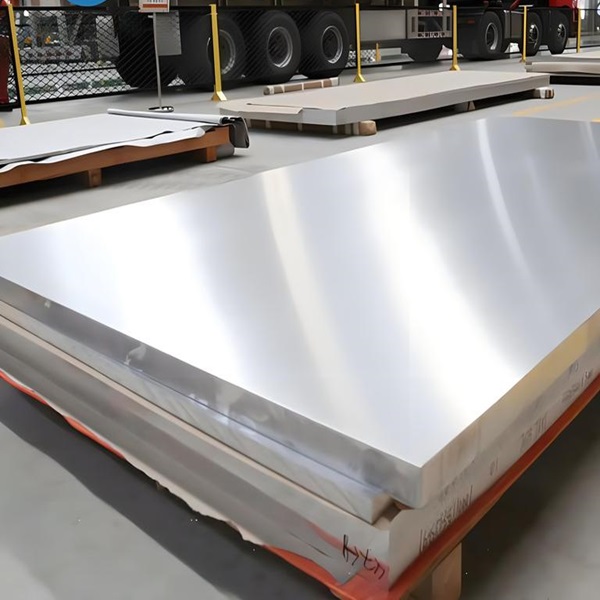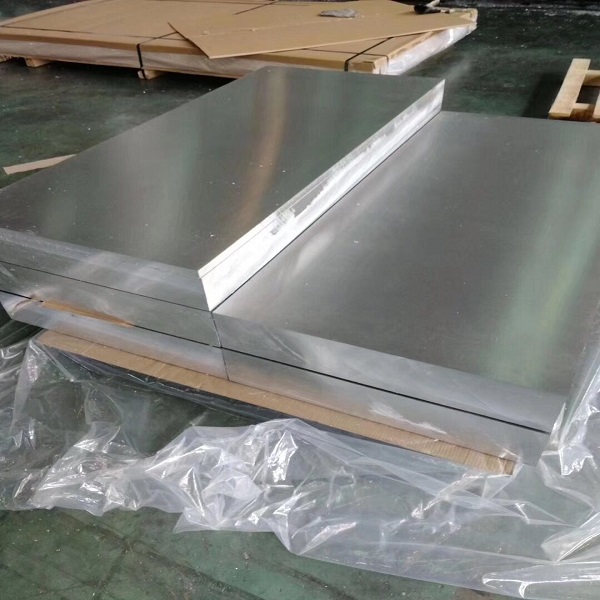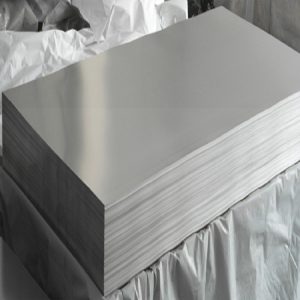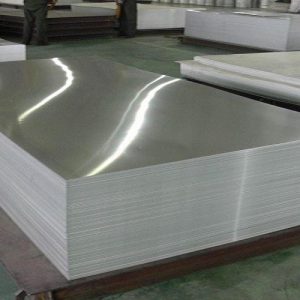5454 H32 aluminum sheet is widely used in ships, marine engineering, oil tankers, pressure vessels, automobile bodies and other fields. In these areas, it meets the high requirements for material strength, corrosion resistance and processability.
Description
5454 H32 aluminum sheet is an aluminum alloy sheet that has been strain hardened and stabilized. It is commonly used in the aerospace industry for its high strength and corrosion resistance properties.
The “H32” designation refers to the tempering process, which involves heating the aluminum sheet and then cooling it rapidly to achieve the desired hardness
5454 aluminum alloy is an aluminum-magnesium alloy with high strength, good plasticity and excellent corrosion resistance. Its tensile strength and yield strength are higher than other aluminum alloy materials, while maintaining good formability and welding performance.
After heat treatment in the H32 state, the hardness of 5454 aluminum alloy can reach 70~80HB, significantly improving its strength and hardness.
The surface of the alloy is not easy to form an oxide layer and has good resistance to corrosive media such as seawater and chloride. It is suitable for special applications such as marine environments and chemical equipment.
In addition, 5454 aluminum alloy also has good low-temperature properties and is suitable for use under low-temperature working conditions, such as cryogenic storage tanks, liquefied natural gas (LNG) storage tanks, etc.
5454 H32 aluminum plate is widely used in ships, marine engineering, oil tankers, pressure vessels, automobile bodies and other fields. In these areas, it meets the high requirements for material strength, corrosion resistance and processability.
5454 aluminum plate can be heat treated in various states, including O, H32, H34, etc., to change its mechanical properties and organizational structure.
5454 H32 aluminum sheet has good plasticity and processing performance, can be cold and hot processed, and can be easily formed and processed into various complex shapes.
Standard of 5454 H32 aluminum sheet:
- ASTM B209
- ASTM B221
- ASTM B234
- ASTM B241
- ASTM B404
- ASTM B547
- ASTM B548
- QQ A-200/6
- QQ A250/10
- SAE J454
5454 Aluminum Sheet Chemistry Composition & Mechanical Properties & Features:
| Element | Si | Fe | Cu | Mn | Mg | Cr | Ti | Zn | Al |
|---|---|---|---|---|---|---|---|---|---|
| Standard Value | ≤0.25 | ≤0.40 | ≤0.10 | 0.50-1.0 | 2.4-3.0 | 0.05-0.20 | ≤0.20 | ≤0.25 | Remainder |
| Actual Value | 0.06 | 0.28 | 0.03 | 0.87 | 2.77 | 0.09 | 0.02 | 0.02 | Remainder |
| Alloy & Temper | Tensile Strength Mpa | Elongation(%) | Yield Strength Mpa | Surface |
|---|---|---|---|---|
| 5454 H32 | 250-305 | >8 | >180 | Qualified |
| 5454 O | 215-275 | >18 | 109 | Qualifie |
| Alloy | Temper | Thickness | Width | Length |
| 5454 | F, O, H12, H14, H16, H18,H19,
H22, H24, H26, H28, H32, H34, H36, H38, H111, H112, H114, H116, H321 |
0.3-600 | 20-2650 | 500-16000 |
5052 aluminum plate is commonly used in architecture, vehicles, and general sheet metal work. 5454 aluminum plate has better weldability than 5052 aluminum plate, which makes it more suitable for applications that require welding.
The magnesium content of 5052 aluminum plate is between 2.2-2.8%, and the tensile strength is 170-305MPa. Compared with 5454 aluminum sheet, it has a wider range of uses, especially in the construction industry.
Aluminium alloy 5454 has very good corrosion resistance, in particular to seawater and general environmental conditions. Strength is medium to high and similar alloy 5754 with good strength in the temperature range 65 to 170 degrees centigrade. It has a high fatigue strength. It is not suitable for complex or fine extrusions.
Applications 5454 is typically used in:
~ Road Transport Body-Building
~ Cemical and Process Plant
~ Pressure Vessels, Containers, Boilers
~ Cryogenics
~ Marine & Off-shore incl. Masts,
~ Pylons, poles & masts






–
–
–